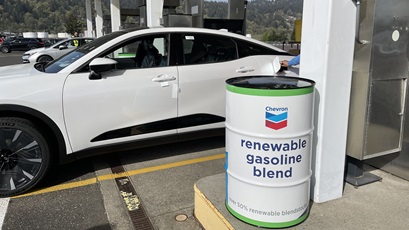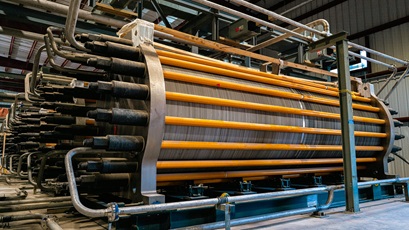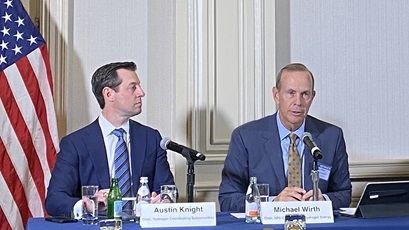emissions solutions
agriculture sows a new path for lower carbon energy
1 min read | november 02, 2023
Agriculture runs in the family for Paul Nees, who was raised on his father's Iowa farm.
Today, Nees is helping create added value for agricultural products like seed oils and animal fats, which can make lower carbon fuels.
“Farmers are now raising crops and livestock for both food and fuel,” said Nees, vice president of global supply and trading for Chevron’s Renewable Energy Group. “We’re taking their byproducts and turning them into renewable fuel products which, in turn, helps the agricultural industry be more profitable.”

Nees, pictured in a soybean field, says the industry is seeing renewable fuels production ramp up with demand.
why it matters
The shift to quality, lower carbon fuels includes agricultural suppliers.
Their feedstocks, like soybean oil and animal fats, are needed to make renewable diesel and biodiesel. Such fuels emit less carbon on a lifecycle basis and can help improve air quality.

Renewable fuels, including biodiesel, made from seed oils and animal byproducts, can offer sources of alternative energy.
fuel for thought
Chevron doesn’t buy crops like canola and soybeans directly from farmers. Instead, it works with companies that purchase and process plant seeds into oils. From there, Chevron turns it into quality, bio-based diesel.
The growing demand for renewable diesel and biodiesel, mostly used for transportation, is helping boost profits for farmers. They now have buyers for products that otherwise might have less value.
paul nees
vice president of global supply and trading
topics covered
related content
-

 1st US hydrogen-powered passenger ferry open for business
1st US hydrogen-powered passenger ferry open for businessalternative fuelsaugust 23, 2024
-

 toyota and chevron drive progress with renewable gasoline blend
toyota and chevron drive progress with renewable gasoline blendalternative fuelsjuly 18, 2024
-

 ACES hydrogen project to advance lower carbon future
ACES hydrogen project to advance lower carbon futureemissions solutionsjuly 03, 2024
-

 study recommends ways to expand hydrogen to help meet US climate goals
study recommends ways to expand hydrogen to help meet US climate goalsemissions solutionsmay 28, 2024
chevron email updates
Subscribe to our newsletter to receive news and updates.



